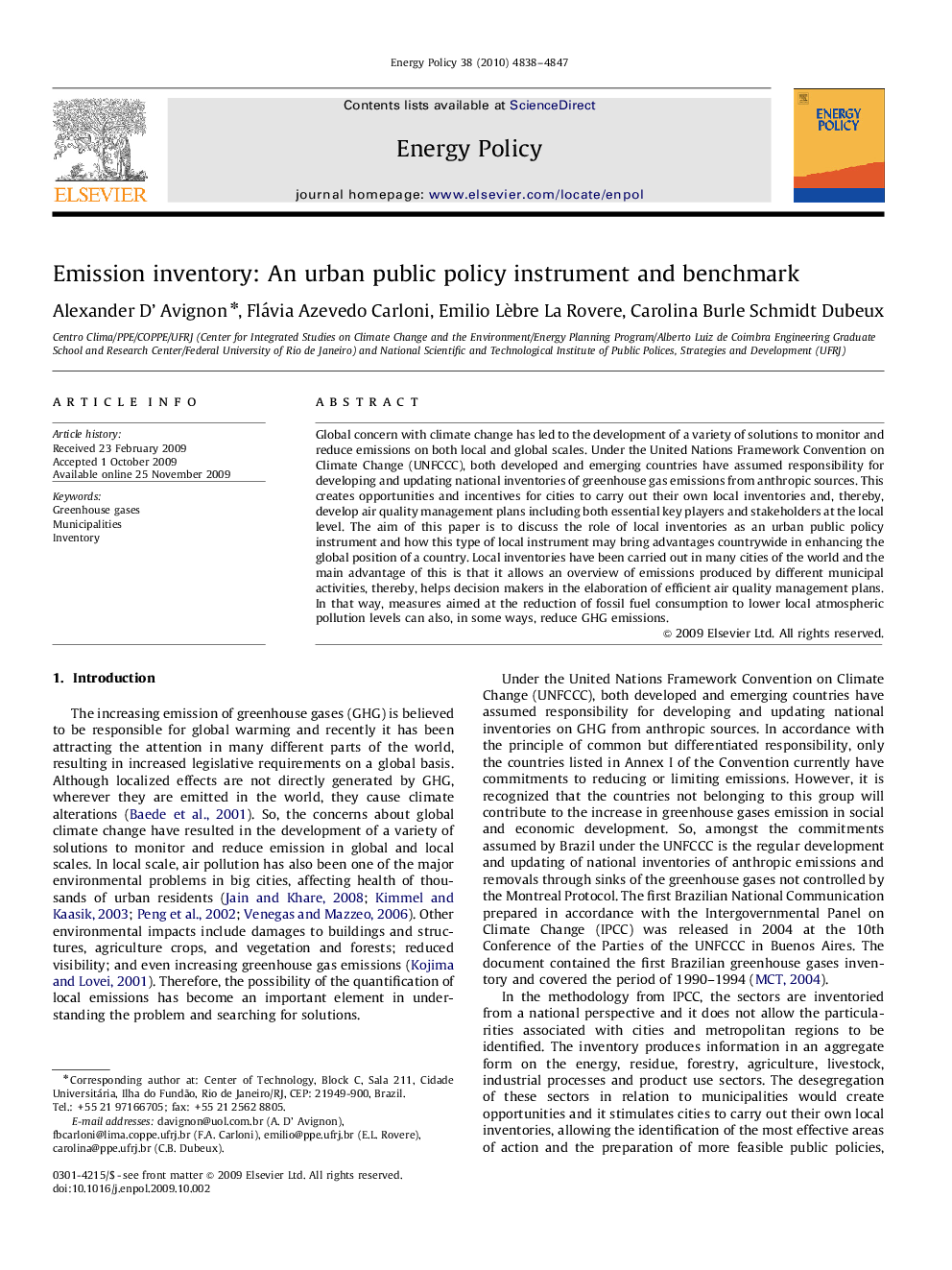| Article ID | Journal | Published Year | Pages | File Type |
|---|---|---|---|---|
| 996418 | Energy Policy | 2010 | 10 Pages |
Global concern with climate change has led to the development of a variety of solutions to monitor and reduce emissions on both local and global scales. Under the United Nations Framework Convention on Climate Change (UNFCCC), both developed and emerging countries have assumed responsibility for developing and updating national inventories of greenhouse gas emissions from anthropic sources. This creates opportunities and incentives for cities to carry out their own local inventories and, thereby, develop air quality management plans including both essential key players and stakeholders at the local level. The aim of this paper is to discuss the role of local inventories as an urban public policy instrument and how this type of local instrument may bring advantages countrywide in enhancing the global position of a country. Local inventories have been carried out in many cities of the world and the main advantage of this is that it allows an overview of emissions produced by different municipal activities, thereby, helps decision makers in the elaboration of efficient air quality management plans. In that way, measures aimed at the reduction of fossil fuel consumption to lower local atmospheric pollution levels can also, in some ways, reduce GHG emissions.
